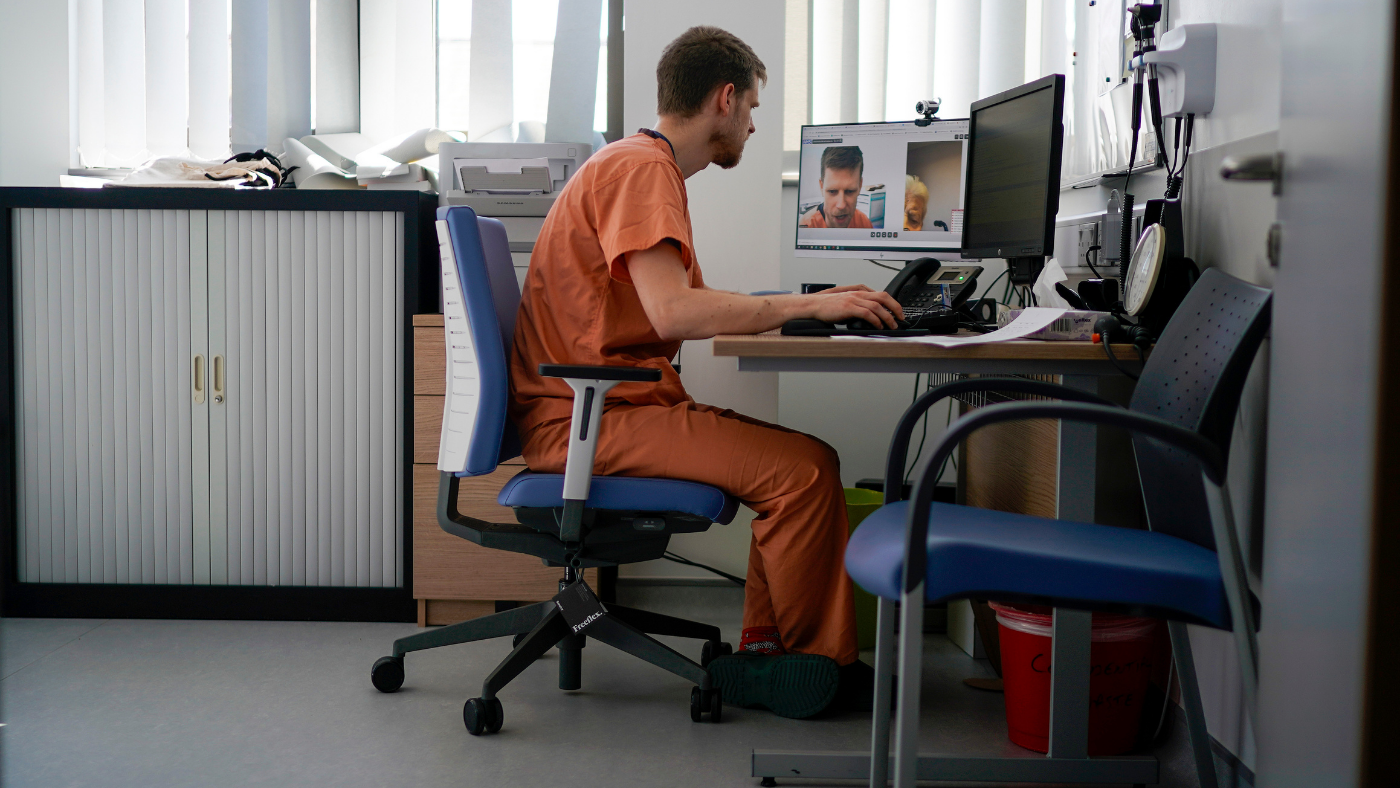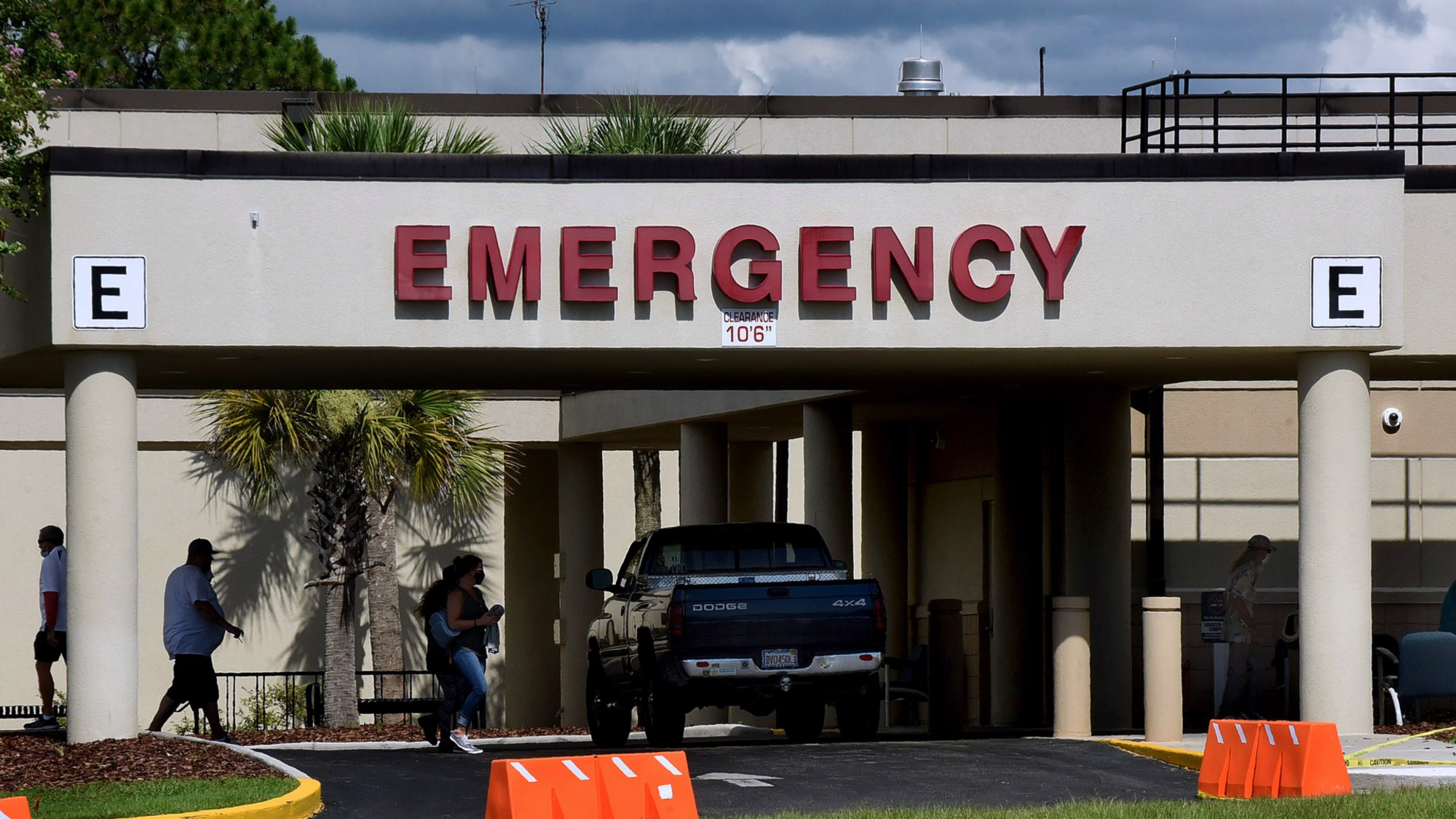Where have all the doctors and nurses gone?
Health sector seeing a ‘breakdown’ in relationship between patients and medical professionals

A free daily email with the biggest news stories of the day – and the best features from TheWeek.com
You are now subscribed
Your newsletter sign-up was successful
As hospitals face severe shortages in nursing staff, GPs have hit back at reports that their working hours have hit a record low.
Research commissioned by the Department of Health before the Covid-19 pandemic has found that general practitioners worked an average of three days a week in 2019. But “the very notion of a ‘part-time’ GP is often anything but”, said the British Medical Association’s GP committee chair, Dr Richard Vautrey.
The tenth National GP Worklife Survey, which was carried out in 2019–20 and heard from 1,332 GPs, found that they worked an average of 6.6 half-day sessions per week, “the lowest on record”, said The Telegraph. However, the survey data shows GPs work an average of 40 hours a week, “the same as most full-time jobs”, Vautrey pointed out.
The Week
Escape your echo chamber. Get the facts behind the news, plus analysis from multiple perspectives.

Sign up for The Week's Free Newsletters
From our morning news briefing to a weekly Good News Newsletter, get the best of The Week delivered directly to your inbox.
From our morning news briefing to a weekly Good News Newsletter, get the best of The Week delivered directly to your inbox.
Sessions, which are 4 hours and 10 minutes long, are “an incredibly crude measure” of working conditions, Vautrey continued. “GPs in reality work 10 to 12-hour days” as morning and afternoon sessions “often extend well beyond” the stipulated hours.
The news comes as England’s hospitals have warned of a “mounting workforce crisis”, The Observer said, as NHS figures have revealed that there were around 39,000 vacancies for registered nurses at the end of June this year.
Rising tensions
“The relationship between GP and patient is breaking down,” said an editorial in The Times. Of the NHS worklife survey’s respondents, 88.6% said that increasing workloads have piled pressure on to staff, while 81.9% reported increasing demands from patients as a considerable stress factor.
A free daily email with the biggest news stories of the day – and the best features from TheWeek.com
There remain “particular tensions over access to face-to-face appointments”, The Telegraph continued, which were reduced over the pandemic as part of public health and safety measures. There were 13.7 million face-to-face GP consultations in August, just over half of the 23.8 million conducted in total, according to NHS data.
Campaigners have called for a return to pre-pandemic levels of in-person appointments, saying that remote consultations risk misdiagnoses. A Downing Street spokesperson told the Daily Mail last month that “the public rightly may choose to want to see their GP face to face – and GP practices should be making that facility available to their patients”.
“The idea that general practice is closed doesn’t stand up to scrutiny,” said medical publisher Pulse. A survey conducted by the publication found that GPs believe “a mixed model” of remote and in-person appointments has “benefited care and resulted in waiting times decreasing”. Pulse also pointed to the fact that total appointments in July 2021 was more than 5 million higher than the previous year.
Nursing ‘crisis’
Pressure is also being felt in hospitals, where staff shortages are causing healthcare experts concern. Recruiting nurses has proved difficult in the wake of the pandemic, leaving “thousands of nursing shifts each week” that “cannot be filled”, according to hospital reports seen by The Observer.
Working conditions during the peaks of Covid-19 caused considerable stress to these frontline staff, and the chair of the Royal College of Nursing (RCN), Carol Popplestone, has said that “without better support” the consequence for nursing staff’s physical and emotional health “will be even longer term damage”.
The pandemic is not the only cause of nursing staff shortages. “A collapse in the numbers of recruits from Europe” has worsened the “crisis”, said The Observer. Some European nurses had suffered abuse from members of the public following the Brexit referendum and Shelley Pearce, a nurse and RCN representative, told the newspaper she could “quite understand” why some European nurses had “made a decision to go home” as a result.
Under attack
The level of abuse GPs face from patients is also rising, and “there have been shocking casualties”, including the hospitalisation of four staff at one GP practice in Manchester by a patient. A survey of 1,000 GPs by Pulse found that around three-quarters reported a significant or slight increase in levels of patient abuse compared to before the pandemic.
Just under half of GPs reported feeling considerable to high levels of pressure from adverse publicity in the media in the worklife survey, a feeling that may have risen in recent months. September this year proved a “particularly brutal month for GPs”, said Pulse as in-person access to primary care services “dominated the news agenda”.
Steps in the right direction?
“GPs feel they are being unfairly scapegoated,” said an editorial in The Telegraph, but they must “acknowledge that there is an issue”. The current triage system for face-to-face appointments, whereby patients are first assessed over the telephone, is “cumbersome”, said the paper. Though 70% of GPs in the worklife survey indicated long working hours were a considerable contributor to job pressure, their working practices are “inconvenient to patients, with evening and weekend surgeries unusual”, the newspaper said.
The British Medical Association is asking general practitioners if they would consider leaving the NHS if the current level of abuse and workloads were to continue. The survey is a “major development”, said Pulse, and Health Secretary Sajid Javid’s response to the findings “could be one of the defining factors of his time in office”.
The government has pledged to recruit an additional 6,000 GPs by 2024, but an “exodus of older doctors” and “the fact it takes ten years to train a GP” has given rise to scepticism the target will be achieved, said The Times.
Julia O'Driscoll is the engagement editor. She covers UK and world news, as well as writing lifestyle and travel features. She regularly appears on “The Week Unwrapped” podcast, and hosted The Week's short-form documentary podcast, “The Overview”. Julia was previously the content and social media editor at sustainability consultancy Eco-Age, where she interviewed prominent voices in sustainable fashion and climate movements. She has a master's in liberal arts from Bristol University, and spent a year studying at Charles University in Prague.
-
 Ex-South Korean leader gets life sentence for insurrection
Ex-South Korean leader gets life sentence for insurrectionSpeed Read South Korean President Yoon Suk Yeol was sentenced to life in prison over his declaration of martial law in 2024
-
 At least 8 dead in California’s deadliest avalanche
At least 8 dead in California’s deadliest avalancheSpeed Read The avalanche near Lake Tahoe was the deadliest in modern California history and the worst in the US since 1981
-
 Political cartoons for February 19
Political cartoons for February 19Cartoons Thursday’s political cartoons include a suspicious package, a piece of the cake, and more
-
 A real head scratcher: how scabies returned to the UK
A real head scratcher: how scabies returned to the UKThe Explainer The ‘Victorian-era’ condition is on the rise in the UK, and experts aren’t sure why
-
 How dangerous is the ‘K’ strain super-flu?
How dangerous is the ‘K’ strain super-flu?The Explainer Surge in cases of new variant H3N2 flu in UK and around the world
-
 The ‘menopause gold rush’
The ‘menopause gold rush’Under the Radar Women vulnerable to misinformation and marketing of ‘unregulated’ products
-
 Private equity firms might be causing more deaths in hospital ERs
Private equity firms might be causing more deaths in hospital ERsThe Explainer Deaths in ERs purchased by private equity firms rose 13%
-
 How the care industry came to rely on migrant workers
How the care industry came to rely on migrant workersThe Explainer Government crackdown on recruiting workers abroad risks deepening care sector crisis, industry leaders warn
-
 Could medics' misgivings spell the end of the assisted dying bill?
Could medics' misgivings spell the end of the assisted dying bill?Today's Big Question The Royal College of Psychiatrists has identified 'serious concerns' with the landmark bill – and MPs are taking notice
-
 Washwood Heath: Birmingham's pioneering neighbourhood health service
Washwood Heath: Birmingham's pioneering neighbourhood health serviceIn the Spotlight NHS England chair says there is a 'really good argument this is the model for the future'
-
 The UK's first legal drug consumption room
The UK's first legal drug consumption roomThe Explainer 'Potentially transformative moment in UK drugs policy' as The Thistle opens in Glasgow